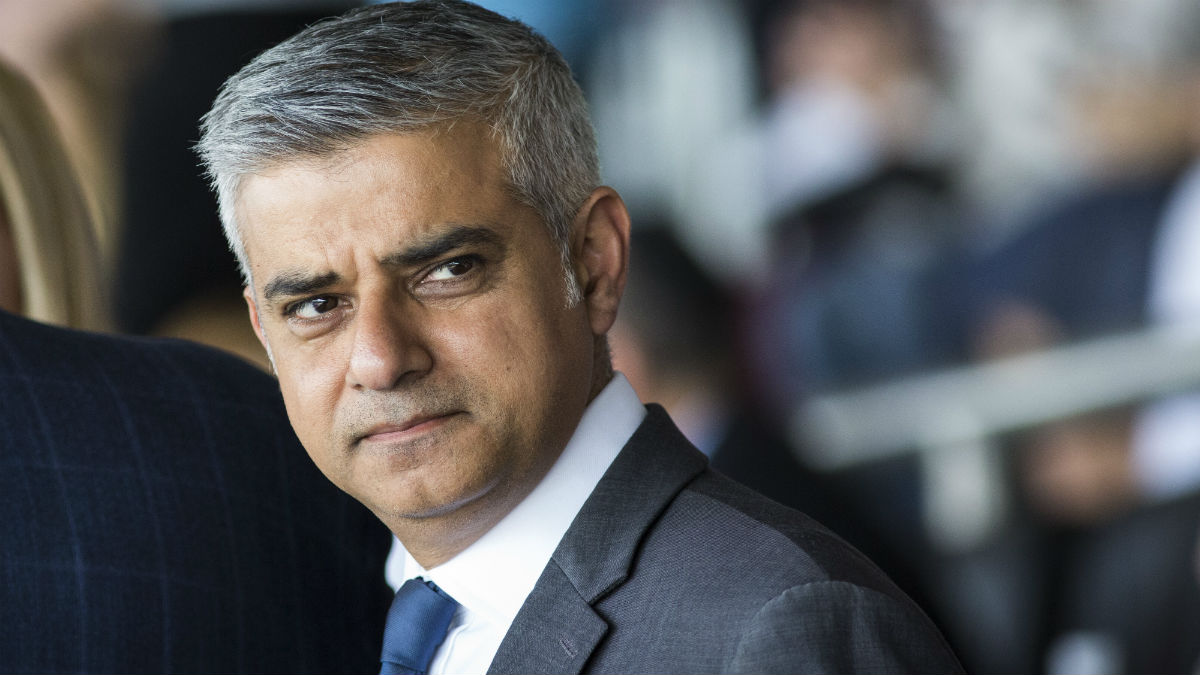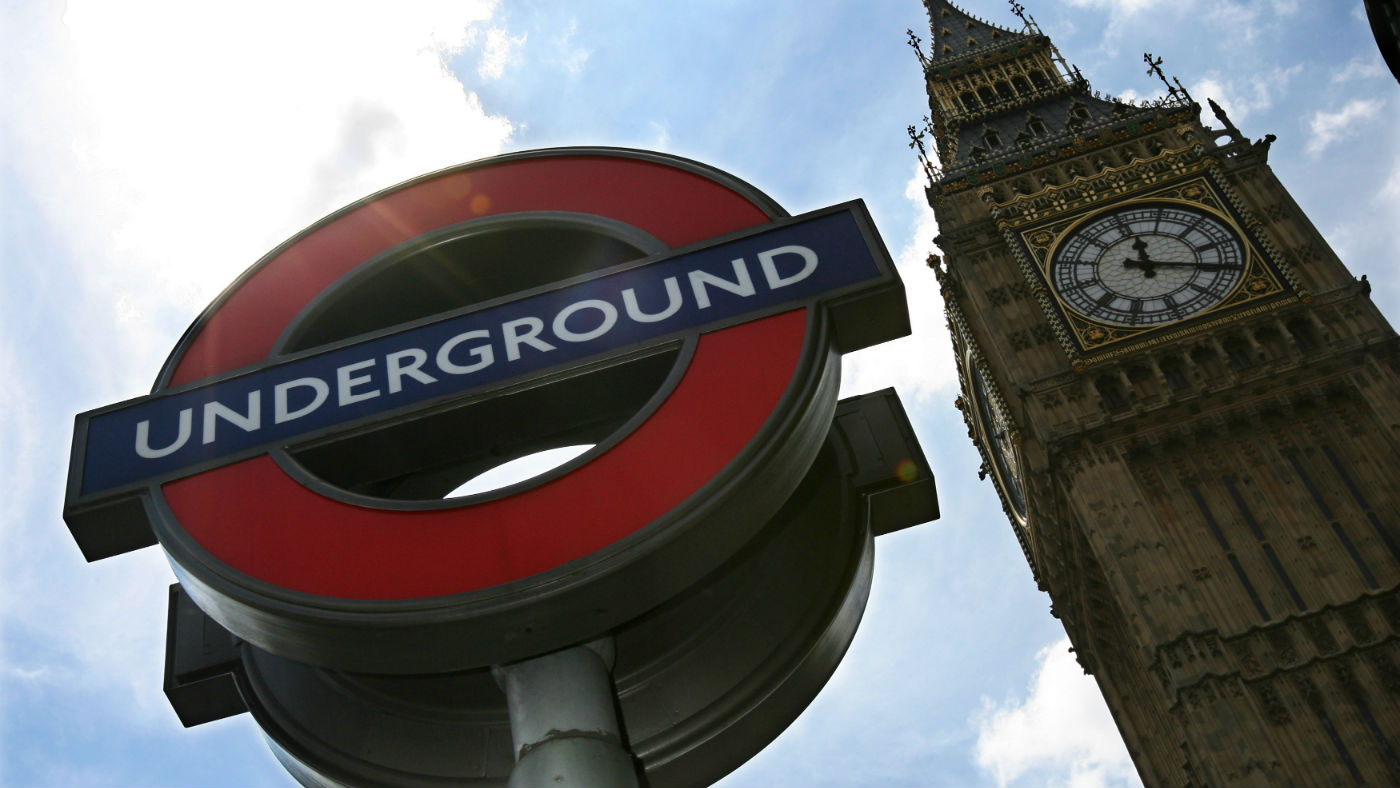What will Mayor Khan do for London's economy?
Pledge on affordable homes is already under scrutiny, while transport plan could mean conflict with the unions

A free daily email with the biggest news stories of the day – and the best features from TheWeek.com
You are now subscribed
Your newsletter sign-up was successful
Sadiq Khan won the "biggest personal mandate in British political history" in winning the race to become mayor of London – and in the process, helped to keep the wolves from the door of a Labour leader of whom he is only a tentative supporter.
City Hall's new boss can now move on from debates about the broader political picture, as well as the specifics of his religion, which became such a major campaign topic. Attention will instead turn to the policies he will implement and the effects for the capital's powerhouse economy.
Housing
The Week
Escape your echo chamber. Get the facts behind the news, plus analysis from multiple perspectives.

Sign up for The Week's Free Newsletters
From our morning news briefing to a weekly Good News Newsletter, get the best of The Week delivered directly to your inbox.
From our morning news briefing to a weekly Good News Newsletter, get the best of The Week delivered directly to your inbox.
The Financial Times states what is by consensus the obvious: that housing has "become the biggest problem facing London". Based on Bloomberg estimates, at £524,000, the average house in the capital is worth more than 15 times the average salary of £34,000 – and some estimate that by 2020, buyers will need a six-figure salary.
Khan has pledged to make 50 per cent of all new homes "genuinely affordable". As mayor, he will have power over planning permissions so can refuse developments that do not meet this criteria. He's also promised to stop overseas investors buying off-plan and locking out those who live in the city by ensuring residents get "first dibs" on new property, says CNN.
There will be challenges in implementing the policies successfully, however, and Khan's stance has already come under attack. Some believe the plans could stymie new developments and curtail essential new housing supply, although Khan has pledged to ensure 50,000 new homes are built each year.
"There will be a high proportion of sites that will not be deliverable at 50 per cent [affordable housing]," says Jim Ward, the head of housebuilding research at property consultancy Savill, while Tony Travers, at the London School of Economics, said the new rules might mean developers "stand back and wait" in the event that the property market slows.
A free daily email with the biggest news stories of the day – and the best features from TheWeek.com
Transport
Transport was a major issue on the campaign trail and perhaps the most visible manifestation of the mayor's powers. It was also a key point of differentiation from Khan's main rival Zac Goldsmith, as the Labour man pledged to freeze fares for four years while maintaining a multi-billion-pound investment programme.
At a time when the government is cutting £700m from the Transport for London budget - and taken alongside a separate pledge to introduce a one-hour bus ticket - Khan has been accused of getting his sums wrong. Moody's said in a report today that his pledge would be "credit negative" for TfL.
But the new Mayor has tackled this issue head-on and offered what the FT says is an "unusual" response for a Labour candidate and promised to fund investment plans from efficiencies in the transport authority's "flabby" £12bn budget.
This means cutting spending on "bureaucracy", but Khan's so far only singled out spending on consultants. In reality, hunting for savings could mean knock-on effects for at least back office staffing levels and pay, which could set up an intriguing battle between a left-of-centre city leader and militant transport unions.
Wider economy
Beyond these two issues, the mayor has limited powers, although that hasn't stopped Khan pledging some action, including aiming to increase the number of people earning the voluntary £9.40 London living wage by offering small businesses relief on the taxes within his purview.
In fact, Khan has said he would like to see a minimum of £10 an hour to begin to counter figures showing more than a quarter of Londoners live in relative poverty. This is well in excess of the £9 per hour the government has promised by the end of this parliament, but will be difficult to achieve with only limited tax break incentives.
Elsewhere, Khan has said he will tackle London's awful air pollution record. He's already "vowed to introduce a clean bus corridors scheme which would prioritise new, clean buses for those services that run on the most polluted roads in the city", notes Edie.
Other elements on the green agenda include building up the electric-car infrastructure, expanding the ultra-low emission zone and planting two million more trees.
Khan has also said he will ban fracking in the Great London area, protect the green belt and push for the London Pension Fund to divest its remaining fossil fuel investments.
-
 Local elections 2026: where are they and who is expected to win?
Local elections 2026: where are they and who is expected to win?The Explainer Labour is braced for heavy losses and U-turn on postponing some council elections hasn’t helped the party’s prospects
-
 6 of the world’s most accessible destinations
6 of the world’s most accessible destinationsThe Week Recommends Experience all of Berlin, Singapore and Sydney
-
 How the FCC’s ‘equal time’ rule works
How the FCC’s ‘equal time’ rule worksIn the Spotlight The law is at the heart of the Colbert-CBS conflict
